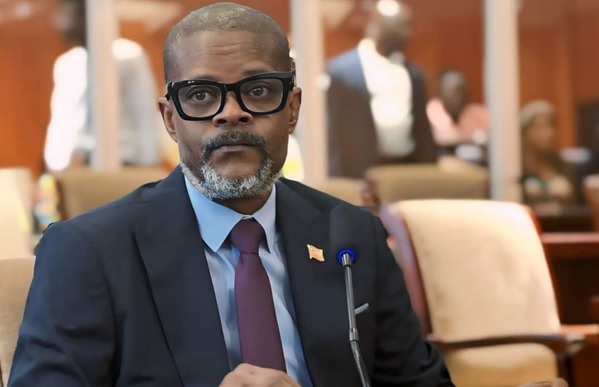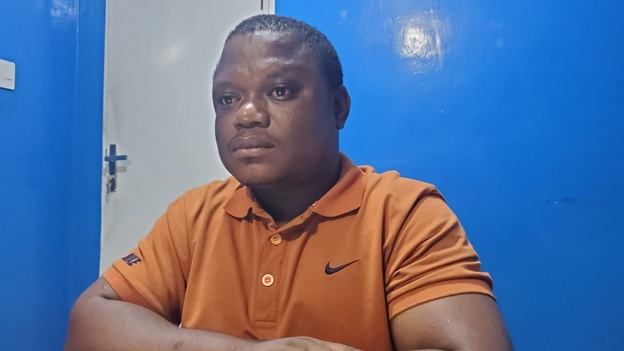MONROVIA, LIBERIA – Activist Martin K. N. Kollie has publicly accused Montserrado County Senator Abraham Darius Dillon of orchestrating an alleged backdoor confirmation process for Mr. Brahima Kaba, President Boakai’s controversial Ambassador-Designate to Kuwait. Kaba, who is nearly 80 years old, has yet to appear for confirmation, raising serious questions about transparency and accountability in the Senate.
By Socrates Smythe Saywon, 0777425285/ 0886946925
saywonsocrates@smartnewsliberia.com
In his critique on Monday, December 23, 2024, addressed to Senator Dillon, Kollie alleged that Kaba’s confirmation is being influenced by bribes, reportedly facilitated by his daughter, who serves as a Special Assistant to Liberia’s Minister of Foreign Affairs, Madam Sara Beysolow Nyanti. Kollie warned Dillon that such an action could severely tarnish his credibility as a lawmaker who has built his reputation on principles of accountability and good governance.
“Dear Senator Dillon,” Kollie wrote, “Ali Sylla, Teeko Yorlay, Lewis Brown, and others appeared for confirmation. Brahima Kaba is yet to appear. It is alleged that his daughter, who is Min. Beysolow Nyanti’s Special Assistant, bribed you to confirm him in absentia. This will put you in trouble.”
Kollie, a vocal critic of bad governance, corruption, and nepotism, has consistently raised concerns about the appointment of Kaba, a retiree receiving pension benefits, to an active foreign service role. His latest claims stress what he perceives as a deepening culture of impunity and favoritism within the Boakai administration and the Liberian Senate.
The activist questioned why Kaba has not been required to appear for confirmation, as is customary for nominees to public office. “This is a glaring example of how Liberia’s governance structures are being manipulated to serve the interests of a select few,” Kollie asserted.
He further accused Senator Dillon, who chairs the Senate Committee on Foreign Affairs and Communications, of betraying public trust by allegedly facilitating the confirmation of Kaba in absentia. According to Kollie, such actions undermine Liberia’s democratic principles and wear down public confidence in the Senate’s oversight responsibilities.
“This is not the Dillon we supported,” Kollie lamented. “You were elected to stand for transparency and accountability, not to be complicit in the corruption and nepotism that have plagued Liberia for decades.”
The controversy surrounding Kaba’s appointment has already kindled widespread criticism, with critics questioning the rationale for reappointing an aged and retired diplomat to active service. Kaba’s case has also drawn attention to bigger issues of nepotism, given his familial ties to a senior official at the Ministry of Foreign Affairs.
“Why is Kaba being treated differently from other nominees?” Kollie asked. “What message does this send to young, qualified Liberians who aspire to serve their country? This is not just about Kaba—it’s about the future of Liberia’s governance.”
Kollie’s allegations have placed Senator Dillon in the spotlight, with many awaiting his response to the claims. Known for his vocal stance against corruption, Dillon’s silence on the matter has fueled speculation and criticism.
“This is a defining moment for Senator Dillon,” said one political analyst. “He must address these allegations head-on to preserve his reputation and demonstrate his commitment to the principles he claims to uphold.”
The activist’s warning also extended to other members of the Senate Committee on Foreign Affairs, urging them to prioritize merit and transparency over personal interests. “Ali Sylla, Teeko Yorlay, Lewis Brown, and others underwent the confirmation process. Why should Kaba be an exception?” Kollie demanded.
Kollie concluded his critique with a call to action, urging Liberians to hold their leaders accountable and demand better governance. “Liberia cannot progress if we continue to allow such blatant violations of our democratic processes,” he wrote. “Senator Dillon and the Senate must do the right thing and ensure that all nominees, including Brahima Kaba, are subjected to a fair and transparent confirmation process.”
The allegations against Senator Dillon and the controversy surrounding Kaba’s appointment have further fueled public discontent with the Boakai administration’s handling of key appointments.
Will Senator Dillon address the allegations and take corrective action, or will this controversy further wear away public confidence in the country’s leadership?







